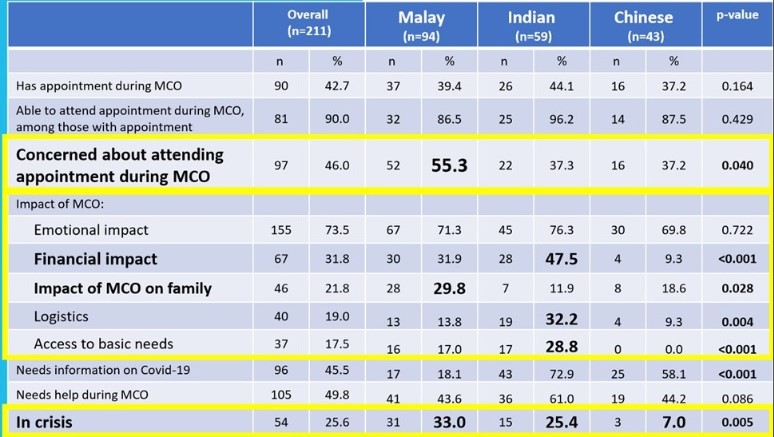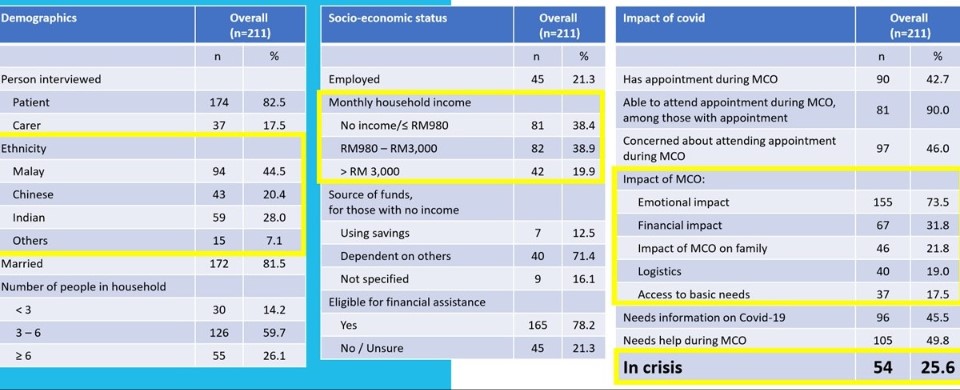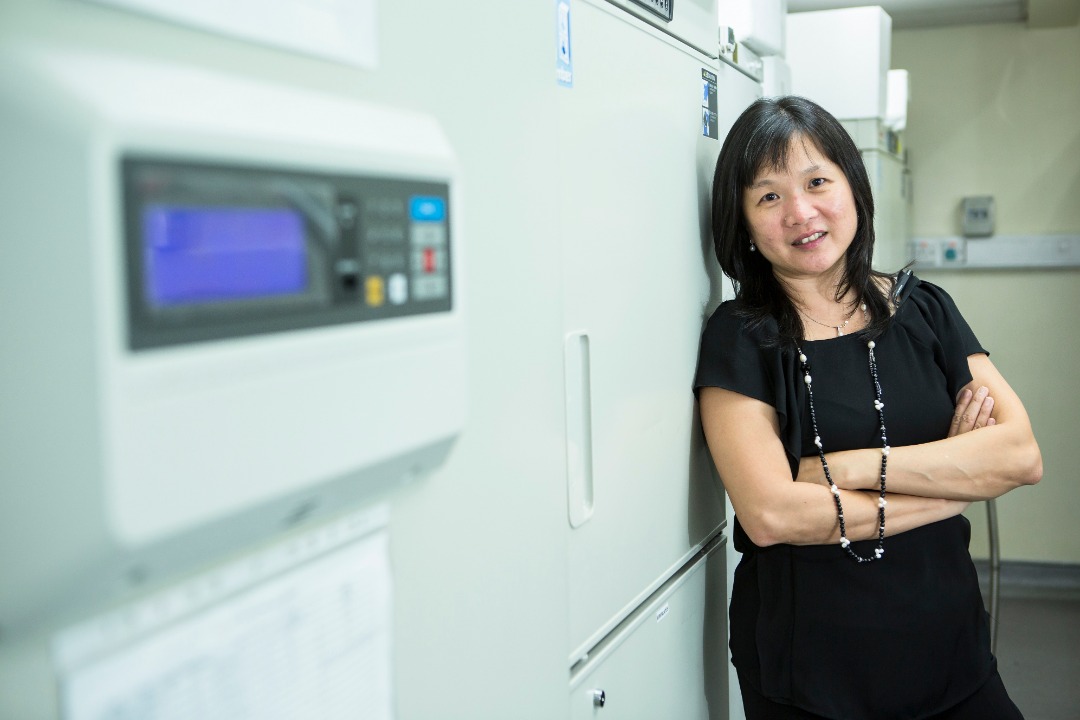KUALA LUMPUR, June 25 — One in four breast cancer patients couldn’t fulfill basic needs like food, water, and electricity during the Movement Control Order (MCO), according to Cancer Research Malaysia.
The April survey by the cancer research non-profit organisation among 211 breast cancer patients from public hospitals in Malaysia found that the MCO — a strict partial lockdown implemented nationwide from March 18 to May 3 during the Covid-19 outbreak — affected breast cancer patients in several ways.
Cancer Research Malaysia classified the challenges they faced from the lockdown as emotional impact, financial impact, logistics, access to basic needs, as well as impact of the MCO on family.
Dr Teo Soo Hwang, founding chief executive and current chief scientific officer of Cancer Research Malaysia, revealed that 25.6 per cent of women surveyed were in some sort of crisis during the MCO that hindered them from receiving treatment for breast cancer.
“When we evaluate a crisis, what we meant by the crisis is basic needs. As human beings, we all have basic needs, from breathing air to food on the table, including water and electricity. It is about making sure that your basic provisions are there.
“We evaluated patients as being in crisis if any one of those basic needs were not available to them, or they did not know where the next provision was going to be,” Dr Teo told a media briefing Tuesday.
The proportion of breast cancer patients in crisis during the MCO was highest among the Malays at one-third of the predominant community, followed by one in four among ethnic Indians, and only seven per cent among ethnic Chinese.

Cancer Research Malaysia’s survey found that 46 per cent of patients reported concern about attending hospital appointments because of fear of Covid-19 infection. Malay women were more likely to express concern at more than half, or 55.3 per cent.
Dr Teo also stated that ethnic Indian women were financially hit the hardest from the MCO. An alarming 47.5 per cent of Indian women surveyed were in financial crisis, compared to 31.9 per cent of Malay women and 9.3 per cent of ethnic Chinese women.
“So, I don’t know whether part of this is because of the nature of the job they had but clearly the financial impact of the Indian community, at least from this survey among breast cancer patients appeared to be much greater in Indians,” said Dr Teo.
In terms of the impact of the MCO on the family, more Malay women, at 29.8 per cent, said the partial lockdown had affected their family, compared to 11.9 per cent of Indians and 18.6 per cent of Chinese.
Almost a third, or 28.8 per cent of Indian women, reported challenges in accessing basic needs, compared to 17 per cent of the Malay community and none among ethnic Chinese.
Cancer Research Malaysia’s survey stated that patients were three times more likely to be in crisis if their household income was less than RM3,000 per month, or if they were Malay or Indian.
Conversely, they were five times less likely to be in crisis if they had family members who were able to play the role of a carer.
The majority of patients with a monthly household income of less than RM3,000 raised concern about making ends meet amid the Covid-19 pandemic.
Among women in crisis, 85 per cent were impacted financially, with many worrying about coping with the financial impact of both a cancer diagnosis and Covid-19.
“So there are some differences here [which are] important for us to be able to understand our patients, not because we treat anyone differently, but we have to understand our patients so that we can deliver services more equitably,” Dr Teo said.
The survey also found that high-income people did not suffer any crisis from the lockdown during the Covid-19 outbreak. Crisis was more likely to hit the low- and middle-income groups.
“One in three [among] the low-income individuals had a crisis. One in three in the moderate income, and zero from the high-income,” Dr Teo said.
She also stated that 40 per cent of low-income breast cancer patients were financially hit by the MCO, while one in four of them couldn’t access even their basic needs.
“We certainly see a difference between ethnicities in terms of their livelihood experiences and difficulties. The Chinese were three to ten times less likely to experience difficulties compared to Malays.
“The low-income groups were three times more likely to experience difficulties compared to the high income group,” she said.

Cancer Research Malaysia’s survey investigated the impact from the Covid-19 pandemic and the MCO on breast cancer patients. Participants comprised patients from public hospitals in Klang, Selangor; Seremban, Negri Sembilan; and Kuching, Sarawak that serve as major Covid-19 referral centres.
The survey was conducted among 211 patients, with 44.5 per cent Malays, 28 per cent Indians, and 20.4 per cent Chinese. The poll also included 7.1 per cent of participants from other ethnic groups.
Among survey participants, 38.9 per cent of their monthly household income was between RM980 and RM3,000, followed by 38.4 per cent without any income or whose households earn less than RM980 monthly, and 19.9 per cent with a monthly household income exceeding RM3,000.
According to Cancer Research Malaysia, these breast cancer patients are low-income women supported by its Patient Navigation Programme, a collaboration between Cancer Research Malaysia, the Ministry of Health, doctors, nurses, and community partners, to improve survivorship by helping underprivileged breast cancer patients get timely diagnosis and treatment.
Update at 3.10pm: Cancer Research Malaysia’s survey was conducted among patients from hospitals in Seremban, Klang, and Kuching, and not Kota Kinabalu too, as reported earlier. The article has been corrected.








